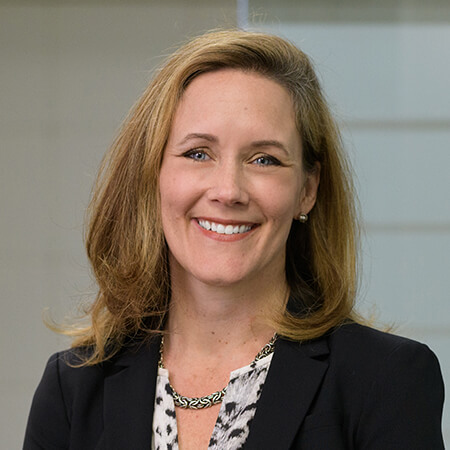Family governance is not a document you complete once and file away. It is a living system that grows and adapts just as the family

UTMA, UGMA, OMG
Custodial accounts are the simplest way to give property to minors, easily established at banks and brokerage firms, and do not require the need for an attorney to create a special trust. The gifts are deemed irrevocable, and age limits then apply for when the assets become fully available to the beneficiary child, typically age 18 or 21, depending upon the state (and in some circumstances, up to age 25). The acronym UTMA, or “ut-mah”, is now the most common way to achieve this, and this stands for Uniform Transfers to Minors Act. The UTMA, which is available in all states except South Carolina, effectively replaces the older, original UGMA custodial account, or “ug-mah” (Uniform Gifts to Minors Act).
The UGMA was initially introduced about sixty years ago, quickly becoming popular and adopted by all states. Like the Uniform Building Code promoting uniform standards in that industry across the country, the UGMA provided a uniform framework for handling assets that minors inherit as gifts or bequests, with the adult custodian (typically a parent) dealing with things until the child comes of age. But UGMA accounts only allow bank deposits, stocks, bonds, mutual funds, and insurance policies; and eventually different states permitted different types of additional assets, and the UGMA became less uniform. The UTMA was created in the early Eighties to address this, eliminating all restrictions and allowing any type of property to be held — real, personal, tangible or intangible. Plus, UTMAs allow transfers based on the occurrence of future events and by powers of appointment.
UTMA/UGMA assets can generally be used for any purpose benefitting the child — from braces, to golf lessons, to iPhones and even a new car when old enough to drive. Many parents — and participating grandparents, too — may have initially earmarked such funds for college-related expenses; but increasingly, the newer 529 Plans are more popular for this specific purpose because they accumulate tax-free. Instead, untouched custodial accounts could be an important source of funds later in life, especially if the current annual exclusion amount of $15,000 per recipient is being used to fund it. For example, this could enable a college graduate to accept a lower salary (such as non-profit work), fund a business idea, or help with a down payment on a first home someday. Of course, the funds fall under the complete control of the beneficiary at a certain age, but with counseling — and possibly the incentive of additional contributions — this could persuade many children not to squander the funds on frivolous things.
Various tax law changes since 1986 have applied the so-called “kiddie tax” to these accounts, and starting this year, any unearned income over $2,100 is taxed at trust and estate tax rates. Lower-yielding, more growth-oriented assets could help reduce this burden, and this might be appropriate for young children with long time horizons. UTMA/UGMAs also count as the child’s property in college financial aid considerations, so this should be considered if such assistance is desired. When the time comes to relinquish the assets to the child, many custodians simply re-register the account in the child’s name, which requires their signature. Many financial institutions will send reminders to custodians that change is needed as the age of majority approaches. Finally, if significant funds and/or significant restrictions are desired on monies to be set aside for children, then more traditional trust accounts are probably in order; but FWIW, this could, AAMOF, be done in addition to using the simple and popular UTMA account. OMG.
Articles and Commentary
Information provided in written articles are for informational purposes only and should not be considered investment advice. There is a risk of loss from investments in securities, including the risk of loss of principal. The information contained herein reflects Sand Hill Global Advisors' (“SHGA”) views as of the date of publication. Such views are subject to change at any time without notice due to changes in market or economic conditions and may not necessarily come to pass. SHGA does not provide tax or legal advice. To the extent that any material herein concerns tax or legal matters, such information is not intended to be solely relied upon nor used for the purpose of making tax and/or legal decisions without first seeking independent advice from a tax and/or legal professional. SHGA has obtained the information provided herein from various third party sources believed to be reliable but such information is not guaranteed. Certain links in this site connect to other websites maintained by third parties over whom SHGA has no control. SHGA makes no representations as to the accuracy or any other aspect of information contained in other Web Sites. Any forward looking statements or forecasts are based on assumptions and actual results are expected to vary from any such statements or forecasts. No reliance should be placed on any such statements or forecasts when making any investment decision. SHGA is not responsible for the consequences of any decisions or actions taken as a result of information provided in this presentation and does not warrant or guarantee the accuracy or completeness of this information. No part of this material may be (i) copied, photocopied, or duplicated in any form, by any means, or (ii) redistributed without the prior written consent of SHGA.
Video Presentations
All video presentations discuss certain investment products and/or securities and are being provided for informational purposes only, and should not be considered, and is not, investment, financial planning, tax or legal advice; nor is it a recommendation to buy or sell any securities. Investing in securities involves varying degrees of risk, and there can be no assurance that any specific investment will be profitable or suitable for a particular client’s financial situation or risk tolerance. Past performance is not a guarantee of future returns. Individual performance results will vary. The opinions expressed in the video reflect Sand Hill Global Advisor’s (“SHGA”) or Brenda Vingiello’s (as applicable) views as of the date of the video. Such views are subject to change at any point without notice. Any comments, opinions, or recommendations made by any host or other guest not affiliated with SHGA in this video do not necessarily reflect the views of SHGA, and non-SHGA persons appearing in this video do not fall under the supervisory purview of SHGA. You should not treat any opinion expressed by SHGA or Ms. Vingiello as a specific inducement to make a particular investment or follow a particular strategy, but only as an expression of general opinion. Nothing presented herein is or is intended to constitute investment advice, and no investment decision should be made based solely on any information provided on this video. There is a risk of loss from an investment in securities, including the risk of loss of principal. Neither SHGA nor Ms. Vingiello guarantees any specific outcome or profit. Any forward-looking statements or forecasts contained in the video are based on assumptions and actual results may vary from any such statements or forecasts. SHGA or one of its employees may have a position in the securities discussed and may purchase or sell such securities from time to time. Some of the information in this video has been obtained from third party sources. While SHGA believes such third-party information is reliable, SHGA does not guarantee its accuracy, timeliness or completeness. SHGA encourages you to consult with a professional financial advisor prior to making any investment decision.
Other Posts By This Author
- – Admitting that Non-Admitted Insurance Is Here to Stay
- – Exchange Ideas
- – College Bound — Hip, HIPAA, Hooray
- – Fiscal Sponsorship for Charity
Related Posts







